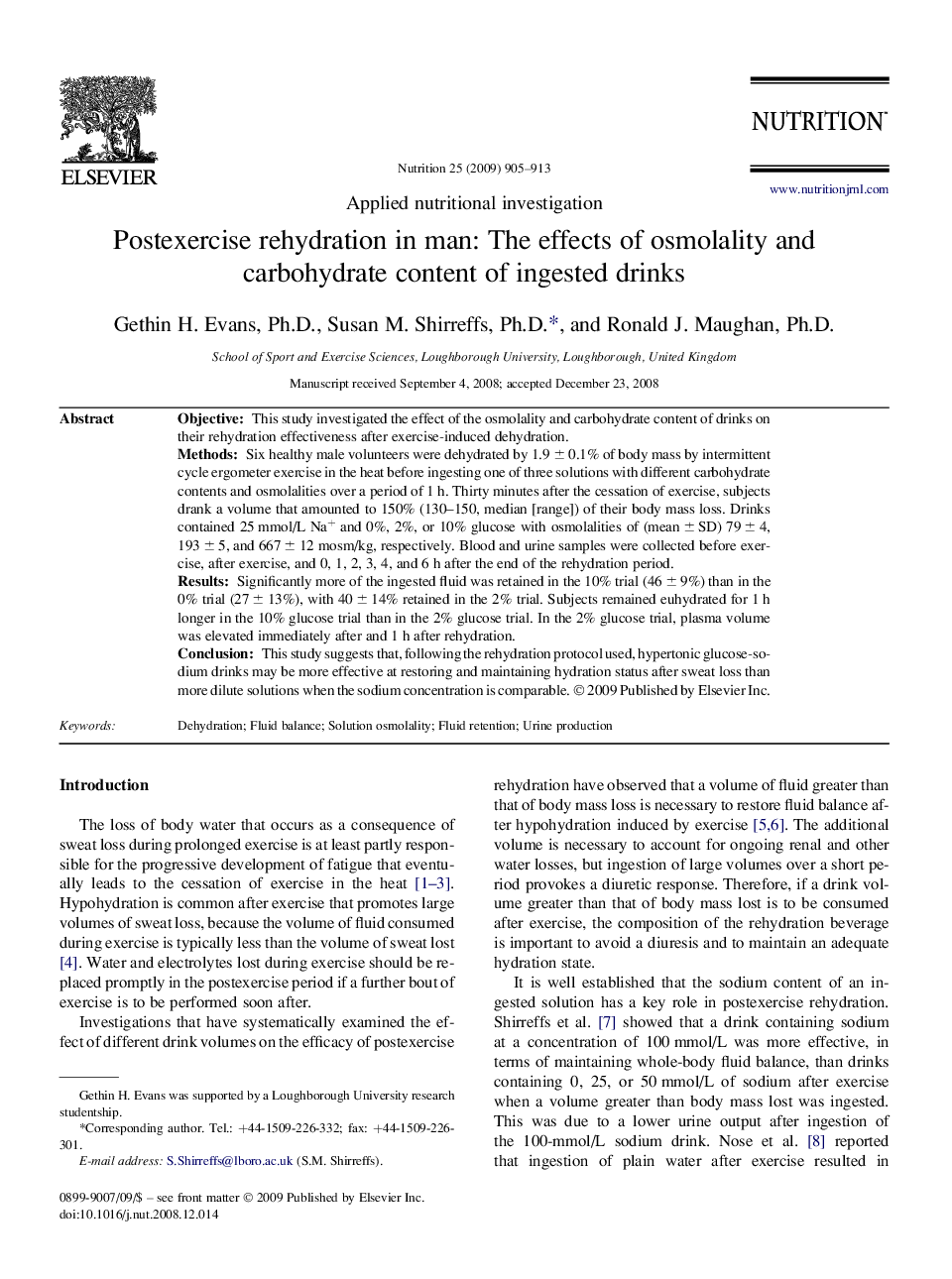| Article ID | Journal | Published Year | Pages | File Type |
|---|---|---|---|---|
| 3276855 | Nutrition | 2009 | 9 Pages |
ObjectiveThis study investigated the effect of the osmolality and carbohydrate content of drinks on their rehydration effectiveness after exercise-induced dehydration.MethodsSix healthy male volunteers were dehydrated by 1.9 ± 0.1% of body mass by intermittent cycle ergometer exercise in the heat before ingesting one of three solutions with different carbohydrate contents and osmolalities over a period of 1 h. Thirty minutes after the cessation of exercise, subjects drank a volume that amounted to 150% (130–150, median [range]) of their body mass loss. Drinks contained 25 mmol/L Na+ and 0%, 2%, or 10% glucose with osmolalities of (mean ± SD) 79 ± 4, 193 ± 5, and 667 ± 12 mosm/kg, respectively. Blood and urine samples were collected before exercise, after exercise, and 0, 1, 2, 3, 4, and 6 h after the end of the rehydration period.ResultsSignificantly more of the ingested fluid was retained in the 10% trial (46 ± 9%) than in the 0% trial (27 ± 13%), with 40 ± 14% retained in the 2% trial. Subjects remained euhydrated for 1 h longer in the 10% glucose trial than in the 2% glucose trial. In the 2% glucose trial, plasma volume was elevated immediately after and 1 h after rehydration.ConclusionThis study suggests that, following the rehydration protocol used, hypertonic glucose-sodium drinks may be more effective at restoring and maintaining hydration status after sweat loss than more dilute solutions when the sodium concentration is comparable.
